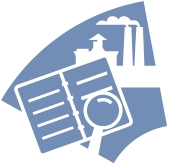Industrial Wastewater Compliance Assistance
What To Expect From An Inspection
 The Department of Energy and Environmental Protection (DEEP) conducts inspections at permitted facilities throughout the state. Under state law, inspectors have the authority to enter your facility at reasonable times to evaluate compliance with your permit and the Water Discharge Permit Regulations of the State of Connecticut.
The Department of Energy and Environmental Protection (DEEP) conducts inspections at permitted facilities throughout the state. Under state law, inspectors have the authority to enter your facility at reasonable times to evaluate compliance with your permit and the Water Discharge Permit Regulations of the State of Connecticut.
Inspections are unannounced so that we can observe normal operating conditions at your facility.
It is your responsibility to provide thorough and complete answers to any questions asked and to have any records and reports required under your permit available for review and inspection.
How You Should Prepare For an Inspection
- Identify contacts who are familiar with the sources of wastewater at the site, the operation of the treatment system, the method of sample collection, and the location of pertinent records, such as operator’s logs and sampling and maintenance records.
- Identify an alternate contact who would, at a minimum, be available to escort the inspector to the treatment system when the primary is not available. The inspector may return for a more detailed inspection when the main contact is present or may conduct the full inspection on the initial visit if appropriate and if the objectives of the inspection can be achieved.
- Learn about common violations and how to avoid them.
Inspector Objectives
The inspector’s objectives are to determine if:
- the collection and treatment systems are properly operated and maintained;
- the treatment system conforms to the approved plans and specifications;
- samples are collected and handled properly;
- the method and location of flow measurement is adequate;
- proper records are being kept with regard to daily operations, daily flow data, treatment system maintenance and sampling;
- operator coverage and alarm systems are adequate;
emergency procedures for treatment control are established; - all wastewater discharges are properly permitted.
What the Inspector Will Do
- Interview the appropriate personnel;
- Inspect the treatment system components;
- Tour the process and waste collection areas;
- Review the operation and maintenance manuals and as-built drawings of the treatment system;
- Review all records associated with the wastewater discharges;
- Collect samples of the discharge;
- May review the facility Hazard Communication Plan (OSHA), Storm Water Pollution Prevention Plan if pertinent, and sludge disposal records.
What Happens After the Inspection
The inspector will summarize his/her findings and recommendations and attempt to specifically identify readily apparent issues and concerns. Because of the need of our field staff to further review documents and notes, it will not always be possible for them to identify all areas of noncompliance during the exit discussion.
You should begin correcting any noncompliance as soon as possible and document such efforts.
Where appropriate, the DEEP may issue a "Notice of Violation" (NOV) to ensure that the noncompliance will be adequately addressed or take a formal enforcement action. Learn about what to do if you receive an NOV.
How to Maintain Compliance with Your Individual Discharge Permit
Content last updated February 2020

